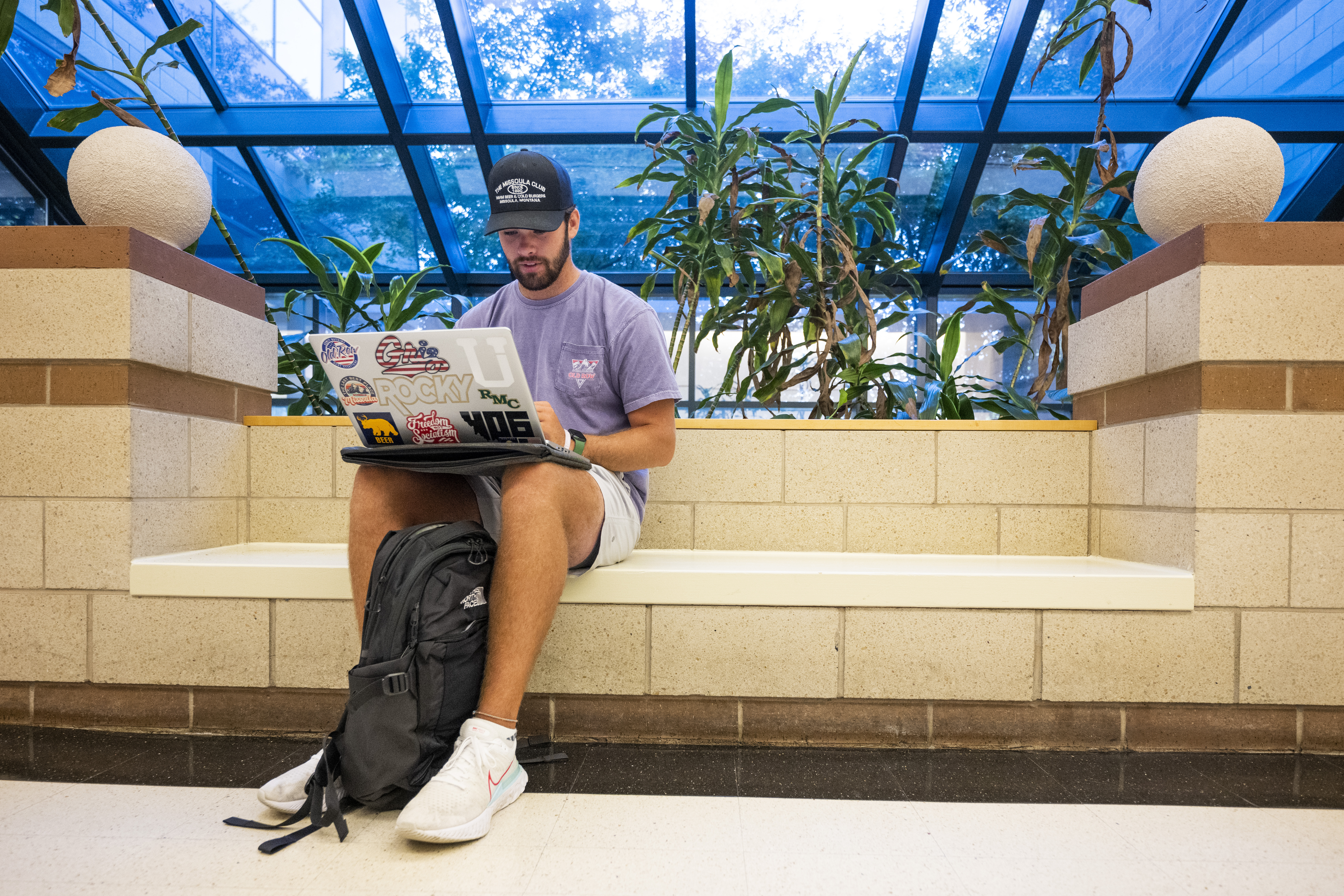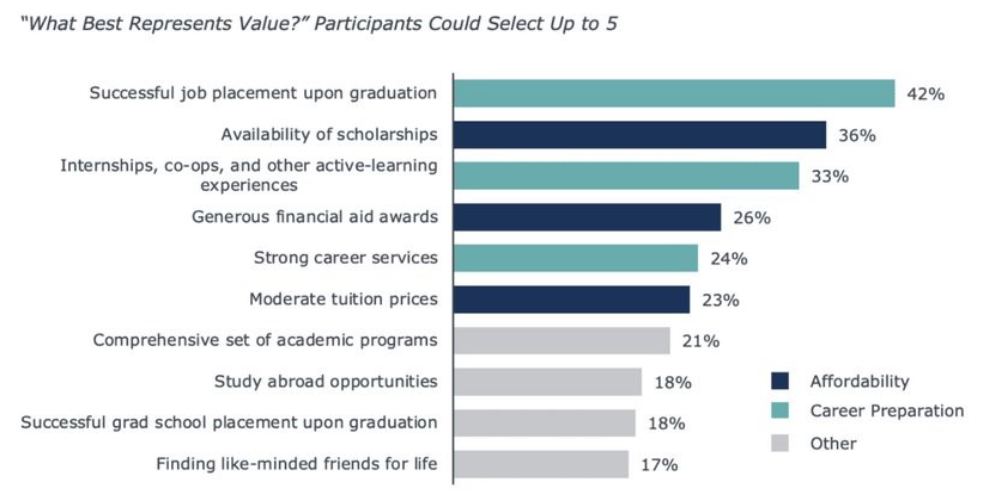Why ElevateU?



Why are we doing this work?
The curricular and co-curricular integration of career readiness is critical in students’ understanding of how the totality of their UM experience contributes to career preparation, particularly their classroom learning. The most fundamental way for UM to improve on career readiness and fully integrate ElevateU is to place it at the table as a component of the academic mission, pedagogy, and programming.
As we progress on this journey, UM remains committed to embracing the changing landscape of higher education. ElevateU uses student outcomes and national data to help guide its work.
Check out the why for each stakeholder group to learn more.
ElevateU Stakeholders
Data from the 2023 NACE (National Association of Colleges and Employers) survey of UM students showed:
- 90% of UM students feel comfortable seeking career advice from their professor, as compared to 86% nationally.This underscores the importance of faculty being prepared to offer career advice/direction for their students.
When asked “What Best Represent Value?”, UM students responded (2022):

Furthermore, research shows there are multiplier effects for marginalized students who engage in career readiness programs that provide them with a greater career boost.
- With 26% of UM students identifying as a first generation student, career readiness integration is a equity imperative.
Nationwide survey results from the Strada Education Network’s Student Survery underscores the crucial role of career readiness curricular integration for alumni success. While graduates consistently value their experiences with faculty and courses, the connection between education and career is often less evident.
Recognizing that career-focused goals impact enrollment decisions, shape confidence in education's value, and significantly influence graduates' assessment of their college experience, facilitating these connections is paramount. (Strada. (2022). Four key practices for improving alumni outcomes, Strada Education Network. https://stradaeducation.org/).
According to the UM’s 2022 First Destinations Survey:
- 42% of UM graduates believe they were well prepared for their careers.
- 36% report current satisfaction with their careers.
Helping students bridge the gap between higher education and career success is essential for shaping their opportunities and outcomes throughout their lifetime.
In 2014, NACE surveyed 606 representatives that hire through a university relations and recruiting effort. Nearly 20 industries were represented with 21.5% being in professional services (includes accounting, engineering, law, computers, and advertising); 13% in education; 11.9% organizations classified as "other manufacturing"; and 8% government organizations. Respondents were asked to indicate the extent to which they view the below seven competencies as essential to new college hire success when considering recent college graduate candidates for their workplaces.
Overall, "professional/work ethic" topped the list, with nearly all respondents identifying this competency as either "absolutely essential" or "essential." Four of the seven competencies were identified as such by 90 percent or more respondents.
COMPETENCY |
PERCENT OF RESPONDENTS |
| Professionalism/Work Ethic | 97.5% |
| Critical Thinking/Problem Solving | 96.3% |
| Oral/Written Communications | 91.6% |
| Teamwork/Collaboration | 90% |
| Information Technology Application | 72% |
| Leadership | 55.9% |
| Career Management | 45% |
Learn more about the fast-changing landscape of higher education
ElevateU is taking shape at a time in higher education when the value of a college degree is under increasing scrutiny. Regardless, data continues to show that for the majority of students, especially those attending a public institution, earning a college degree positions graduates for greater financial success in comparison to peers who did not earn a degree. Landing a good job is the single most important reason students give for going to college. More than eight in ten first-year students say improving their chances of getting a better job is very important to them (Fischer, K. The Uneven Climb from College to Career, The Chronicle of Higher Education. May 5, 2022).
Learn more:
